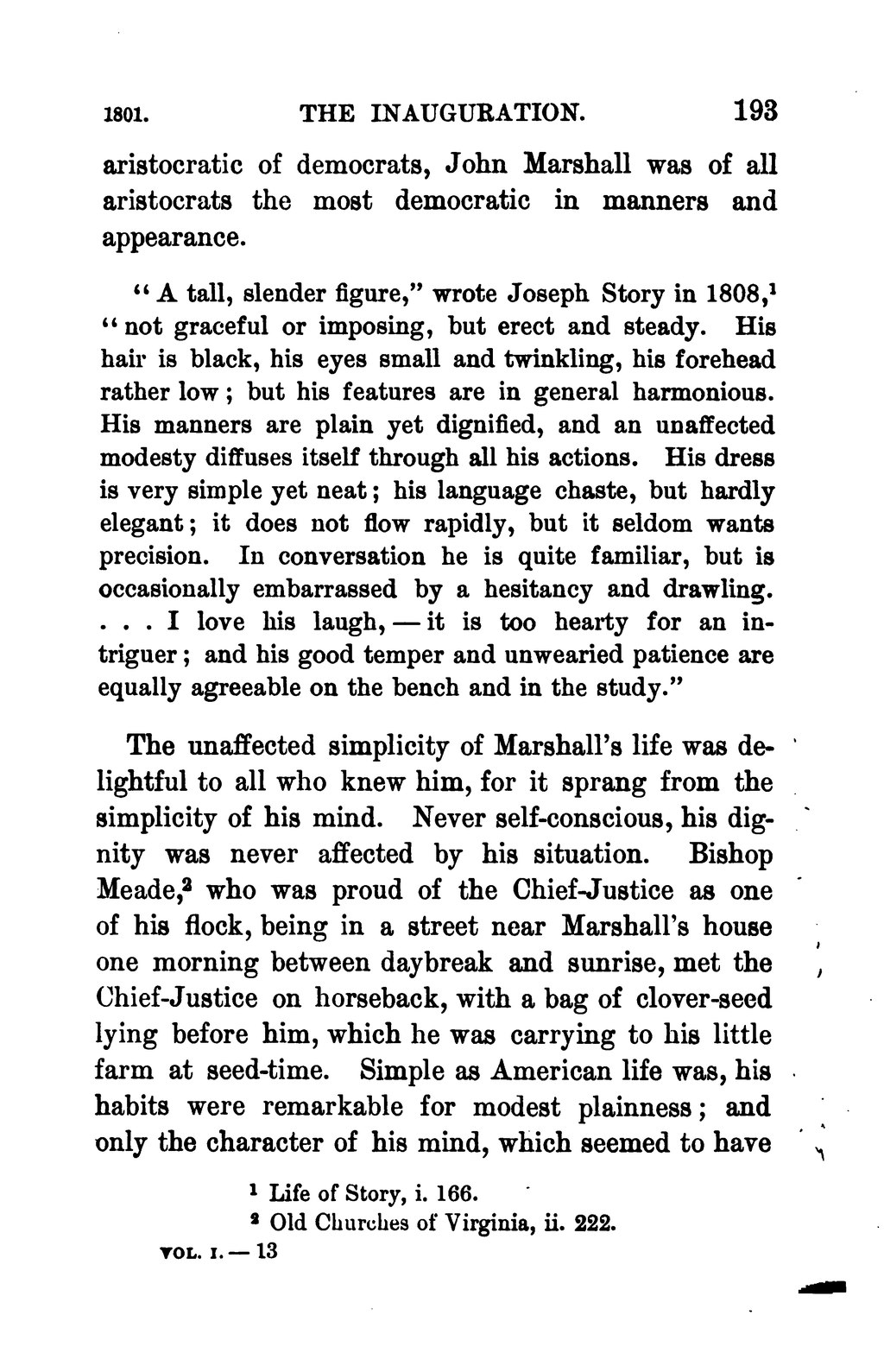1801.
THE INAUGURATION.
193
aristocratic of democrats, John Marshall was of all aristocrats the most democratic in manners and appearance.
- "A tall, slender figure," wrote Joseph Story in 1808,[1] "not graceful or imposing, but erect and steady. His hair is black, his eyes small and twinkling, his forehead rather low; but his features are in general harmonious. His manners are plain yet dignified, and an unaffected modesty diffuses itself through all his actions. His dress is very simple yet neat; his language chaste, but hardly elegant; it does not flow rapidly, but it seldom wants precision. In conversation he is quite familiar, but is occasionally embarrassed by a hesitancy and drawling. . . . I love his laugh,—it is too hearty for an intriguer; and his good temper and unwearied patience are equally agreeable on the bench and in the study."
The unaffected simplicity of Marshall's life was delightful to all who knew him, for it sprang from the simplicity of his mind. Never self-conscious, his dignity was never affected by his situation. Bishop Meade,[2] who was proud of the Chief-Justice as one of his flock, being in a street near Marshall's house one morning between daybreak and sunrise, met the Chief-Justice on horseback, with a bag of clover-seed lying before him, which he has carrying to his little farm at seed-time. Simple as American life was, his habits were remarkable for modest plainness; and only the character of his mind, which seemed to have
